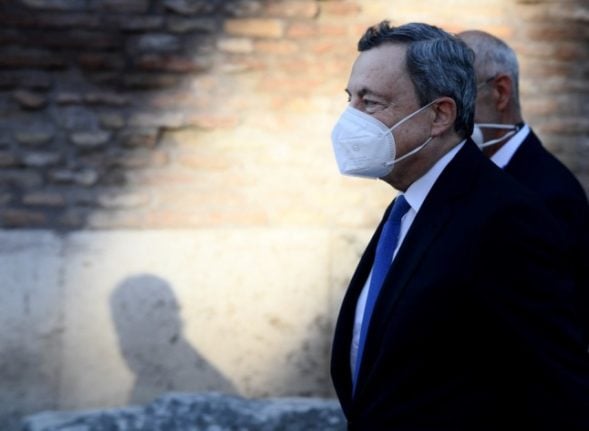“We must not delude ourselves: Afghan girls and women are on the brink of losing freedom and dignity and of returning to the dismal conditions in which they found themselves two decades ago,” Draghi said as Italy, which holds the rotating G20 presidency, hosted a conference on women’s empowerment.
In a statement, Draghi said women in Afghanistan “risk becoming once again second-class citizens, who face violence and are discriminated against systematically just because of their gender”.
READ ALSO: ‘No time to lose’: How is Italy responding to the Afghan refugee crisis?
He added: “The G20 must do all it can to ensure that Afghan women preserve their fundamental freedoms and basic rights, especially the right to education. Progress made over the past 20 years must be preserved.”
The takeover of Afghanistan by the Taliban has sparked fears of a return to the Islamic fundamentalist group’s brutal regime of the 1990s that saw women confined to their homes and punishments including stoning to death for those accused of adultery.
“We cannot look away, and we do not want to,” Italian Equalities Minister Elena Bonetti told Thursday’s G20 conference in Santa Margherita Ligure, near Genoa.
The gathering was hailed by Italy as the first of its kind dedicated exclusively to women’s empowerment, drawing equality ministers and representatives from business, NGOs, academia and civil society from around the world.
It is focused on overcoming inequalities that in many cases have been made starker during the coronavirus pandemic, emphasising the importance of education, training, participation in the workplace and work-life balance.
Meanwhile Italy continues to airlift Italian citizens and Afghans who have worked for the Italian government out of Kabul.
Shots were fired at an Italian transport plane carrying Afghan former NATO workers as it left Kabul airport on Thursday, Italian military sources told news agency Ansa. There was no damage to the aircraft.
Emergency flights organised by western nations to airlift out Afghans at risk of Taliban reprisals due to their work for foreign governments are due to end next Tuesday, August 31st.



 Please whitelist us to continue reading.
Please whitelist us to continue reading.
Total crickets about the coming disaster for Afghan women and girls from the America left. Hypocrisy at its worst.